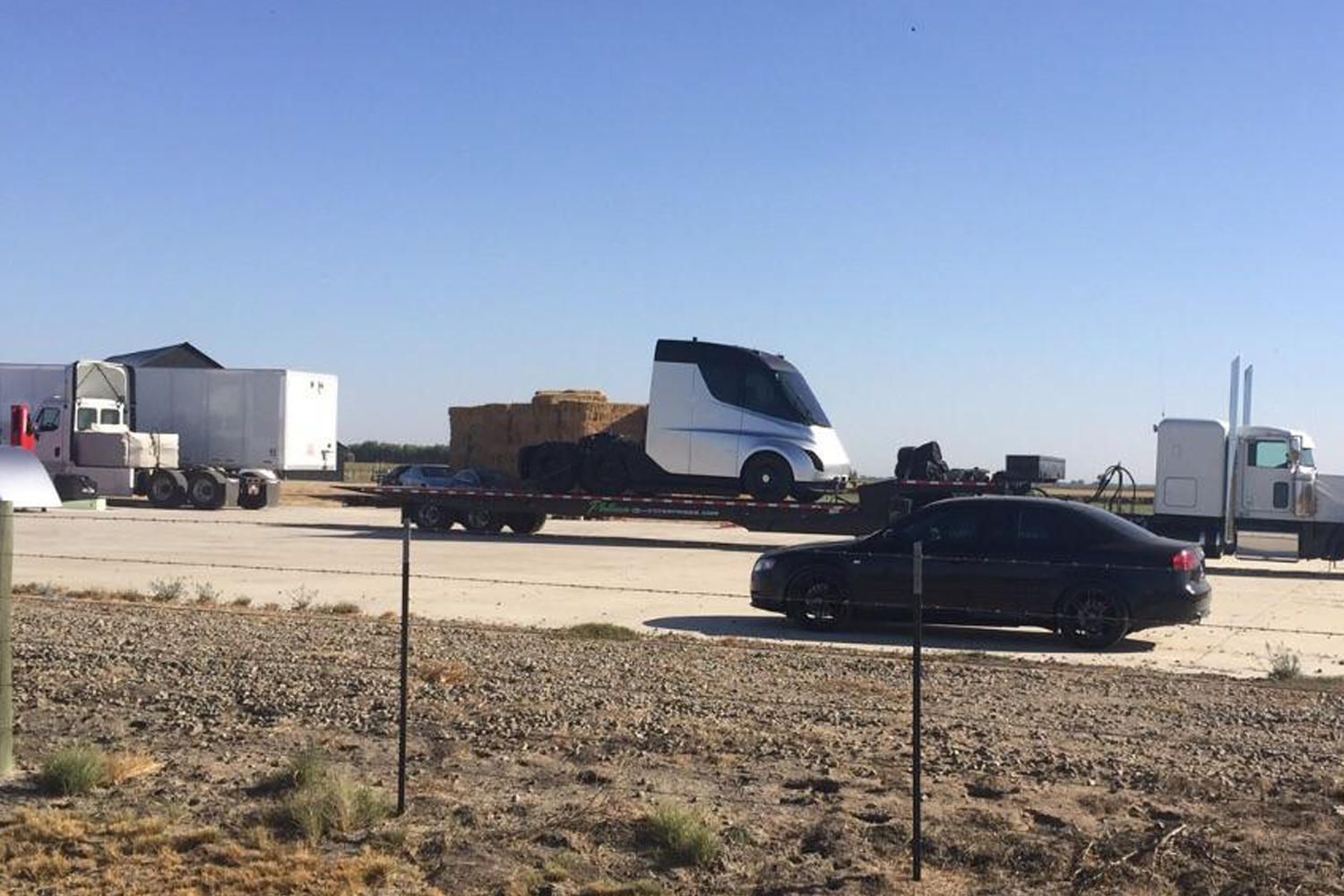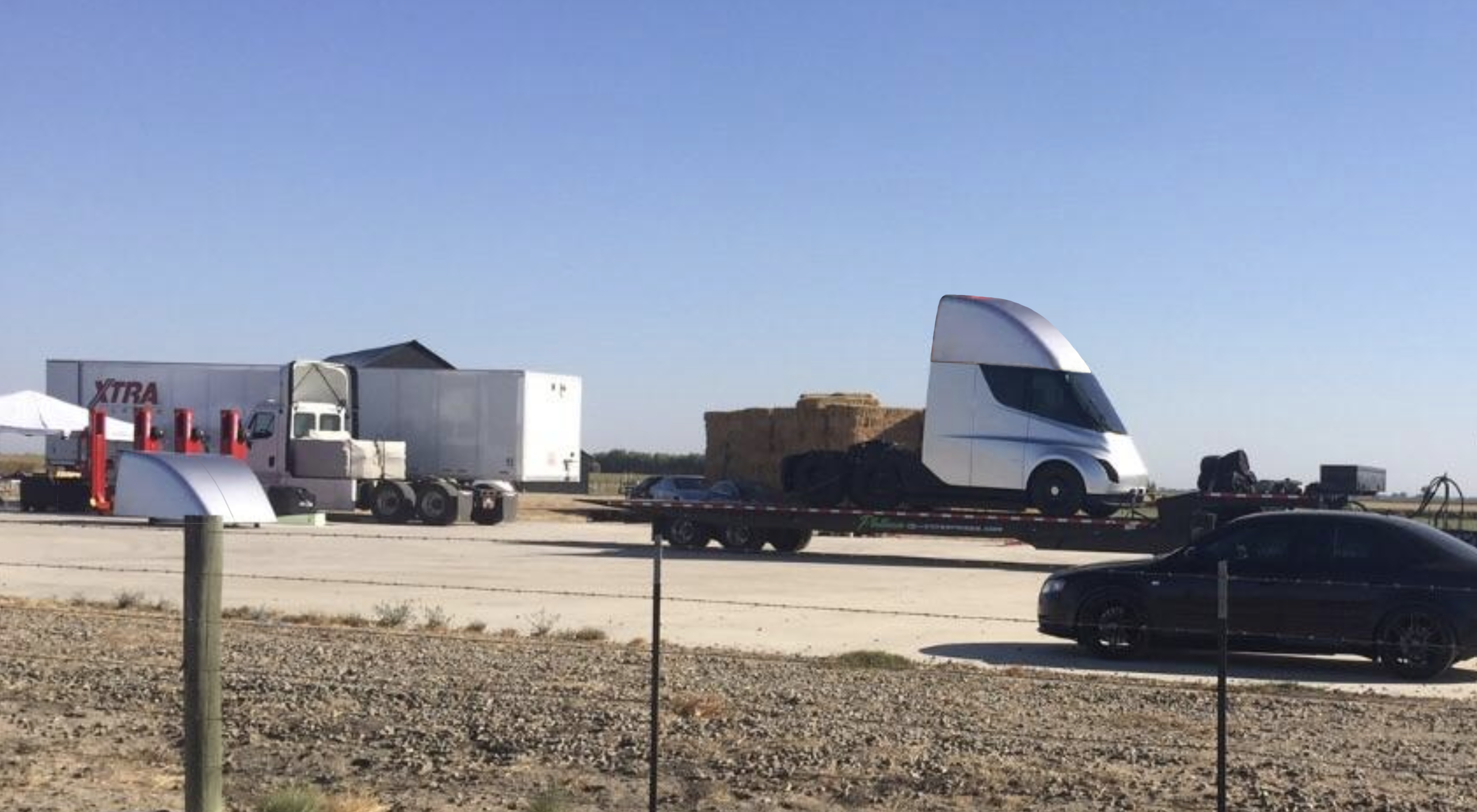
As you would expect from the all-electric automaker, the semitruck looks aerodynamic, futuristic, and downright elegant. At first glance, the truck appears significantly shorter than the official teaser photo (above), but keen-eyed Redditors theorized the silver cap on the left could be the truck’s fairing and promptly Photoshopped it on. Looks pretty close, doesn’t it?
Tesla hasn’t officially commented on the photo, so we’ll have to wait until the unveiling for confirmation. Most recently, Musk took to Twitter to hype up reveal, which will be streamed on Tesla’s website at 8 PM PST. “This will blow your mind clear out of your skull and into an alternate dimension,” he said. “Just need to find my portal gun.” The executive certainly has a way with words.
The leaked image will certainly bolster enthusiasm for what could be another game-changing product from Tesla. The brand is trying to do for the trucking industry what it has already done for the car industry: make electric powertrains desirable, sustainable, and usable on a daily basis. But that will be easier said than done.
The Tesla semitruck will have a range of 200 to 300 miles, according to a recent Reuters report. That is adequate for a passenger car, but not for a long-haul truck. Tesla may need to create a denser network of charging stations to meet truckers’ demands, and harness more powerful technology to charge a battery pack big enough to power a truck in a timely manner. It’s also unclear how much the Tesla truck will cost and whether it will carry a price premium over conventional diesel trucks, which carry six-digit price tags. Granted, lower maintenance and fuel costs could prove attractive to operators trying to maximize profits.
Musk previously suggested it will be possible to drive its truck “like a sports car,” partly due to its low center of gravity and a monstrous amount of instant torque. He also revealed the specs are better than anything he’s seen reported so far, so we could be in for a real surprise when the covers come off next week. Operators who are tired of driving will be in luck, too, because the truck will receive some form of Tesla’s Autopilot suite of electronic driving aids.
Website Teslarati reports the truck will be capable of platooning, which refers to a group of trucks using on-board sensors to travel in a platoon. The computers handling the truck’s braking and steering systems react much faster than a human, so the trucks are able to follow each other much more closely than if they were driven by humans. This technique saves time, fuel, and a substantial amount of money.

While luxury automakers were completely blindsided by the Model S, truck manufacturers are prepared for a Tesla assault. Cummins, a manufacturer of diesel engines, recently unveiled a prototype electric truck of its own. Mercedes-Benz parent Daimler is building small batches of electric commercial trucks, albeit in different market segments than the one Tesla is eyeing. Another company named after Nikola Tesla — Nikola Motor Company — unveiled a hydrogen semi truck in 2016 and plans to build a network of hydrogen stations for customers to use. Toyota is testing its own hydrogen semi truck in Los Angeles. And Ford and Volkswagen are also keeping a close eye on the sector.
Regardless of which company comes out on top, zero-emission semi trucks could have a major environmental impact. Commercial trucks cover vastly more mileage than the average passenger car every year, but get much worse fuel economy that often falls down to the single-digits. Converting semi trucks to battery or fuel-cell power could eliminate a lot of carbon emissions, and go a long way in solving the air pollution problem nations all around the globe are battling.
Update: We’ve added the latest teaser image and tentative technical specifications.



